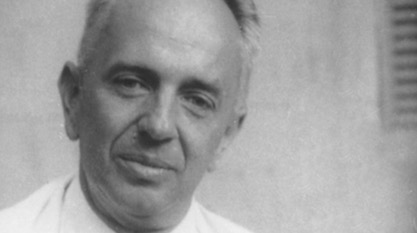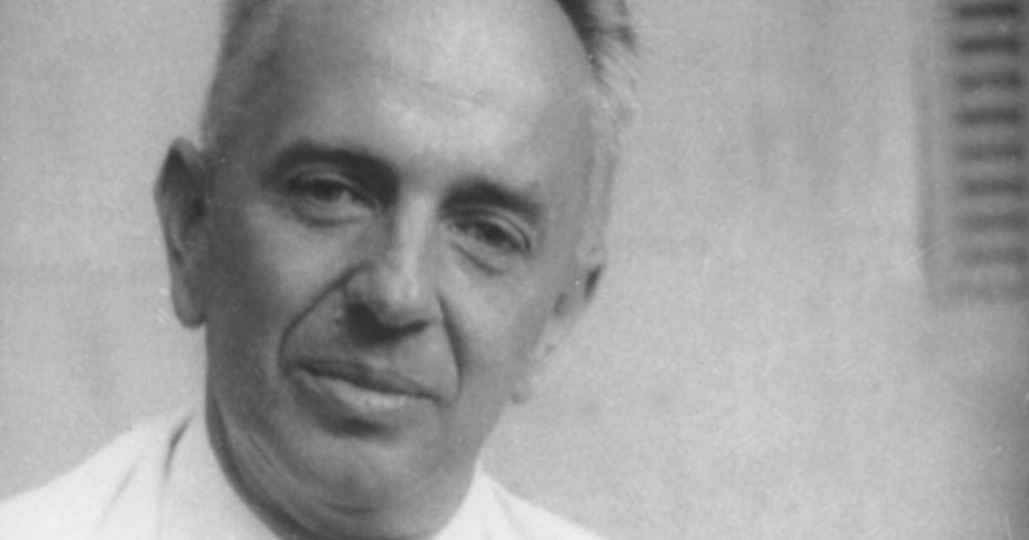 Evolution
Evolution
On Doing Science Versus Understanding Science


As noted here already, I recently attended the annual meeting of the American Academy of Religion. (See “Letter from San Diego: Science for Seminaries or Materialism for the Masses?”) While there, I participated in a workshop sponsored by a program of the American Association for the Advancement of Science called DoSER (Dialogue on Science, Ethics, and Religion). The workshop was held at the Scripps Institution of Oceanography and included a tour of some of the research facilities along with several presentations by Scripps scientists and two theologians. Why were theologians there?
Since 2013, the DoSER program has been running a project called Science for Seminaries, a project designed to make scientific resources available to seminary professors in order to enhance the scientific literacy of priests and pastors. While the presentations were interesting, I was struck by the lack of critical engagement between the scientists and theologians on the issue of the relationship between science and religion and the perceived conflict between them. The two seemed to run along parallel tracks, strange for an organization that has “Dialogue” in its name.
A Failure of Nerve
I had a similar experience at several of the panel discussions related to science and religion at the American Academy of Religion meeting. Many religion scholars and theology professors want to engage with the science/religion relationship, but in a way that avoids holding science up to critical scrutiny. A lack of professional preparation in science seems to leave religion scholars unwilling to cross over disciplinary boundaries for fear of being ridiculed as anti-science or beholden to fundamentalist religious ideology. But I find this failure of nerve troubling.
In my view, there is a clear distinction between doing science and understanding science. The two approaches are not the same. I cannot, for example, go into the lab and sequence a genome. I wouldn’t know where to begin. Nor could I analyze the results of quantum physics experiments done in a particle accelerator. I am not trained to produce new scientific knowledge. But this does not mean that I am unqualified to read the scientific writings of the people who do this kind of work and ponder over its larger implications for philosophical and religious questions. Nor am I unqualified to critically engage with scientific literature as literature, and subject it to the kind of critical analysis to which humanities scholars subject other kinds of discourses.
Marks of Ideological Structures
This is the approach I take in my recent book The Mystery of Evolutionary Mechanisms: Darwinian Biology’s Grand Narrative of Triumph and the Subversion of Religion. I may not be qualified to do biology, but as a scholar trained in the humanities, I am sensitive to the marks of ideological structures embedded in scientific discourses. Bringing these to light and inquiring about their implications for larger questions of meaning and purpose is just as much a contribution to human knowledge as making the next major scientific breakthrough. I do not need to be trained to do science, for example, to notice how often major figures in the history of evolutionary biology admitted that their support for Darwinian natural selection was not based on evidence but, as August Weismann put it, “on quite other grounds.” These ideological markers raise uncomfortable questions about the status of evolutionary theory; so scientists and religion scholars alike tend to avoid them.
Interestingly, religion scholars do not experience the same failure of nerve when it comes to discourses in the social sciences. How many books have been written by religion scholars critically analyzing the role of neoliberal economic ideology and policy in our contemporary world despite lacking the credentials to “do” economics? The same can be said for issues related to race, gender, and sexuality.
Eugenics and Racial Equality
For example, one of the premier scholars of race today, Ibram X. Kendi, who gave a distinguished lecture last winter at Luther College, where I teach, observes how the influential evolutionary biologist Theodosius Dobzhansky and anthropologist Ashley Montagu published an article in the journal Science in 1947 bearing the statement, “Race differences arise chiefly because of the differential action of natural selection on geographically separate populations.” Because Dobzhansky and Montagu were rejecting eugenic ideas of a fixed racial hierarchy, they are often portrayed as providing a scientific basis for racial equality. But eugenicists could still argue that African populations contained the lowest frequency of good genes while European populations were the most naturally and culturally evolved. African peoples might over time develop toward a more sophisticated culture, but that remained only a future possibility.
In Kendi’s words, “as much as Dobzhansky and Montagu buried eugenic ideas, they ended up birthing new assimilationist ideas.” And these assimilationist ideas are just as racist as the separatist ideas they were designed to replace! This is just one example of the critical insight that can arise when a humanities scholar reads scientific discourse through a non-scientific lens.
Alive and Well
For their part, scientists have not shied away from weighing in on religious ideas — they do it all the time, and not just noted atheists like Richard Dawkins. At the dawn of sociobiology in the 1970s, its founder E. O. Wilson proclaimed that we had come to the time when science could give a fully material explanation of its chief rival — religion — based on an understanding of how natural selection acts on the evolving material structures of the brain. “Theology is not likely to survive as an independent intellectual discipline,” Wilson exhorted. But forty years later, theology is alive and well!
This is not to say that scientists should refrain from analyzing religious discourse from a scientific perspective. They should (though they would be well served to familiarize themselves more deeply with the fruits of scholarship in the study of religion). But I see no reason why those of us in the humanities should shy away from engaging scientific discourse in a critical way. This kind of dialogue is what liberal arts education is all about.
Photo: Theodosius Dobzhansky in 1943, via Flickr [Public domain], via Wikimedia Commons.
Cross-posted with permission from the blog Ideas and Creations.
